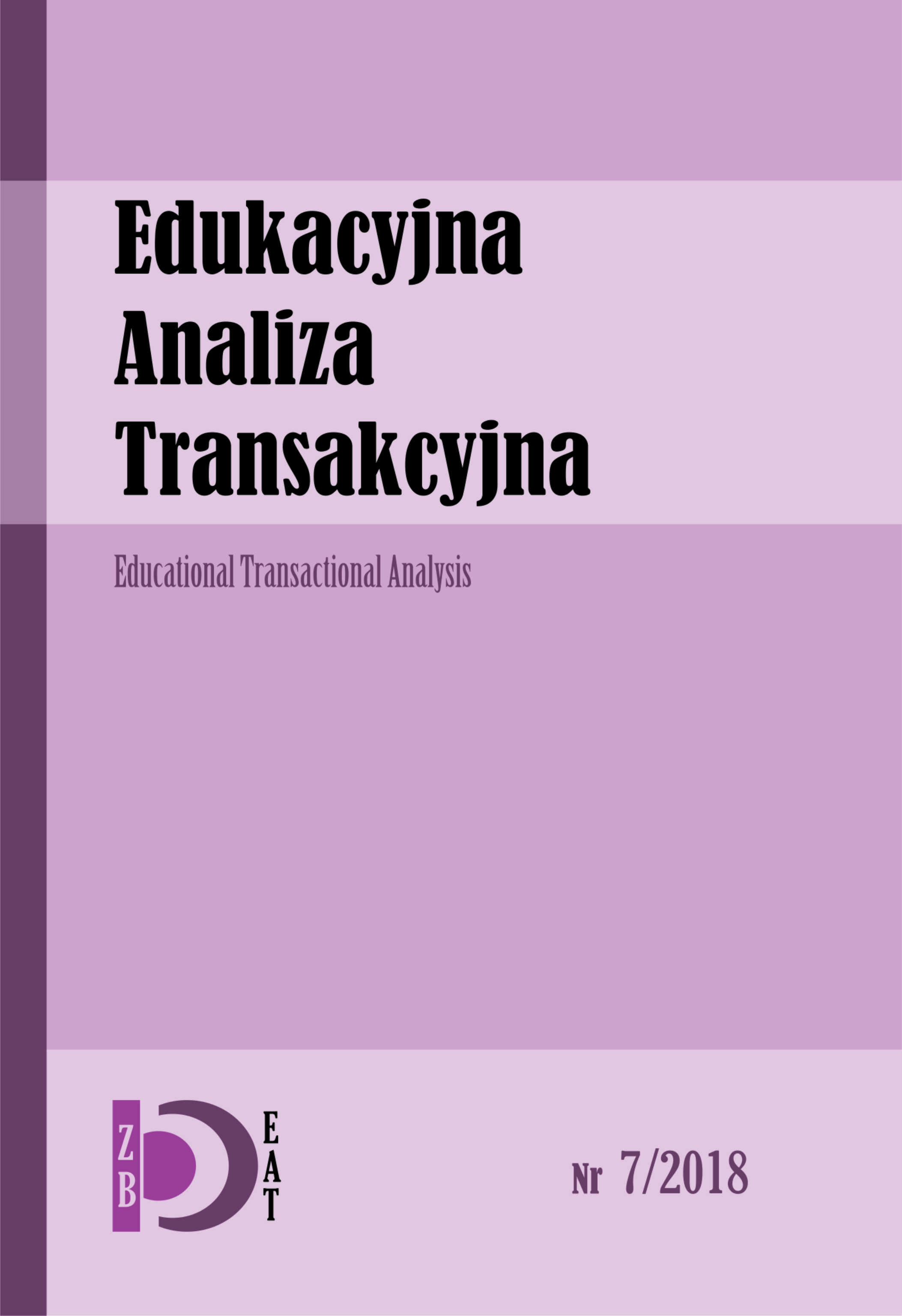Strokes, games and learning in groups
- Authors
-
-
Piotr Jusik, mgr
International Community School London, Centro de Investigacion Cientifica y Cultural w San Pedro, Guatemala
-
- Keywords:
- recognition hunger, psychological games, group dynamics
- Abstract
-
Students’ hunger for strokes plays a key role in improving learning outcomes and emotional literacy in groups. Teachers and facilitators can consciously respond to their learner’s need for recognitionby paying attention to the group culture and creating a responsive environment through modelling.When learners’ hunger for strokes is unmet, they start inviting psychological games. Teachers canrespond adequately by stressing options in relation to the Drama Triangle. Additionally, TA concepts are more effective when applied in a relationship context, as otherwise the interventions become a fruitless, simplistic and formulaic endeavour. Some group settings give rise to the role lock phenomenon, when an individual represents an issue that is collectively avoided by other members. When this is brought into awareness, the group can move forward. On the whole, learners thrive when they receive appropriate strokes and permissions that support their growth and development.
- Downloads
-
Download data is not yet available.
- Author Biography
- Downloads
- Published
- 2018-12-30
- Issue
- No. 7 (2018)
- Section
- Transactional analysis in education
- License
-
AUTHOR'S STATEMENT
I am aware that the Educational Transactional Analysis journal is published under a Creative Commons license - Attribution (https://creativecommons.org/licenses/by/4.0/legalcode).
By submitting the article, I agree to make it available under this license
How to Cite
Similar Articles
- Justyna Kasprzyczak, mgr, Psychologiczne znaki zauważenia „strouki” otrzymywane przez uczniów od nauczyciela a samoocena uczniów , The Educational Transactional Analysis: No. 1 (2012)
- Agata Szekiełda, Anna Jaskulska, Once upon a time, in a supervisor’s office , The Educational Transactional Analysis: No. 9 (2020)
- Monika Cyrwus, mgr, Gry małżeńskie jako szczególny rodzaj gier interpersonalnych , The Educational Transactional Analysis: No. 1 (2012)
- Olga Druciarz, mgr, Rodzaje transakcji między nauczycielem a uczniem nieśmiałym , The Educational Transactional Analysis: No. 1 (2012)
- Beata Cytowska, Socio-psychological contexts of taking on the role of employee by adults with intellectual disabilities , The Educational Transactional Analysis: No. 13 (2024)
- Piotr Jusik, mgr, Formal and Informal Use of TA Counselling in Education , The Educational Transactional Analysis: No. 6 (2017)
- Agata Szekiełda, Bartłomiej Przybylski, Games and the teacher-headmaster relationship , The Educational Transactional Analysis: No. 8 (2019)
- Izabela Mikołajewska, Agata Mikolajewska- Furmanek, (Non) aggressive, (non) violent computer games - definitional challenges , The Educational Transactional Analysis: No. 12 (2023)
- Eunika BARON-POLAŃCZYK, Computer games in the hierarchy of importance of children’ and adolescents’ activities in the ICT world – research report: learners’ and teachers’ opinions , The Educational Transactional Analysis: No. 11 (2022)
- Ewa Wilczewska, Feedback as an educational tool to meet needs and an area of exchange of recognition signs , The Educational Transactional Analysis: No. 9 (2020)
You may also start an advanced similarity search for this article.
Most read articles by the same author(s)
- Piotr Jusik, mgr, Formal and Informal Use of TA Counselling in Education , The Educational Transactional Analysis: No. 6 (2017)
- Piotr Jusik, Educational passivity – from theory to practice , The Educational Transactional Analysis: No. 9 (2020)

